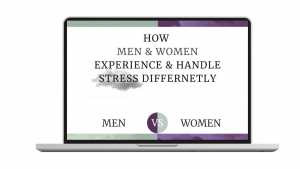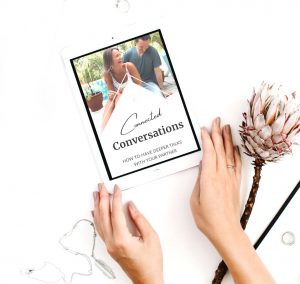As you begin to reflect on the deeper mechanisms at play in your controlling behaviors, watch out for these common, often unconscious control traps I see happen in my client’s relationship dynamics.
What might feel like a “helpful suggestion” to a partner if given from the wrong intention (to change their behavior, stand for a different outcome) can easily come off as unsolicited, unwanted advice and not feel good to receive.
When in groups or in a social setting watch out for jumping in to answer questions for him when he’s right there, interrupting his story before he can fully finish it (because you think you can tell it better), talking on his behalf or speaking to his preferences without his consent.
In addition to talking on his behalf, making decisions on his behalf is equally damaging to a connection and not only occurs as controlling but also untrustworthy. Imagine finding out decisions were made on your behalf without the opportunity to have a say.
Giving your partner a “look” from across the room in response to something they said or did also does not feel good to be on the receiving end.
Reading these back, it may seem so obvious that these are controlling behaviors that would have anyone feel small or in your partner’s case, emasculated, but so often we do these without thinking or without an afterthought.
Or without really understanding the impact they have on the level of connection and intimacy that’s able to be experienced.
So what can we do instead?
As mentioned in the previous section, awareness comes first. When you’ve been able to slow down and really notice how you’ve shown up in the past, come back to your partner to make these admissions. Ask them to help hold you accountable so you can stop the behavior in its tracks. Ask them to share the impact and how it’s made them feel so a dialogue of even deeper understanding can open between the two of you. Make sure to be a safe space for an honest answer to these questions by opening yourself to the feedback without getting defensive and going into justification.
Learn how to step into making requests not demands and hand the power back to your partner. Let them take the lead again, make decisions in the relationship, and handle the things you normally try and control. Be patient, it may take some time for the dynamic to switch back and it may not happen on your timeline or how you would prefer it to look, but when it does, your partner will stop deferring to you as the sole decision maker and take their place back as an equal partner. It will have them feel empowered and trusted and like they can succeed within your connection.
If you are wanting your man to take more initiative and step more into his masculine, you making these shifts is imperative.










